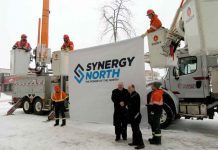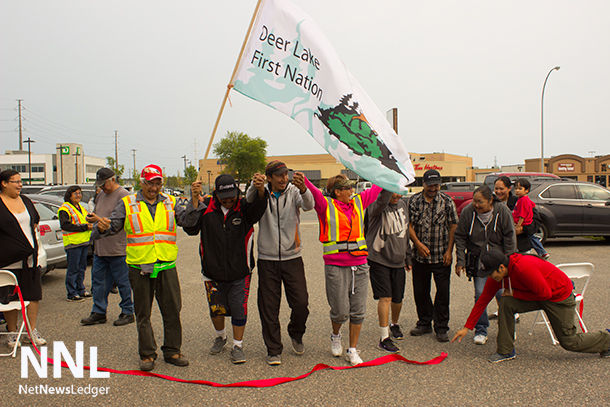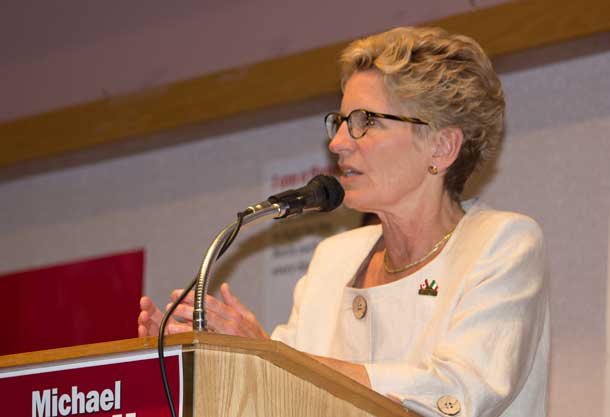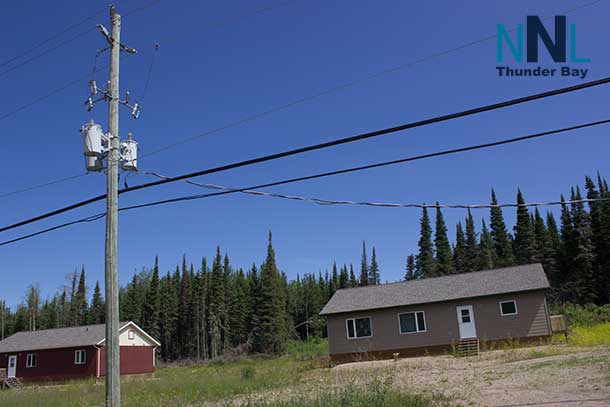
DEER LAKE FN – Imagine that mere metres away, Ontario Hydro poles were bringing electricity to all your neighbours, but for the past five years the power utility told you that they just don’t have the capacity to bring power to your home.
Then imagine that only a few kilometres from that home, Ontario Hydro has a hydropower generating station. In addition there are diesel-generating capacity in the community.
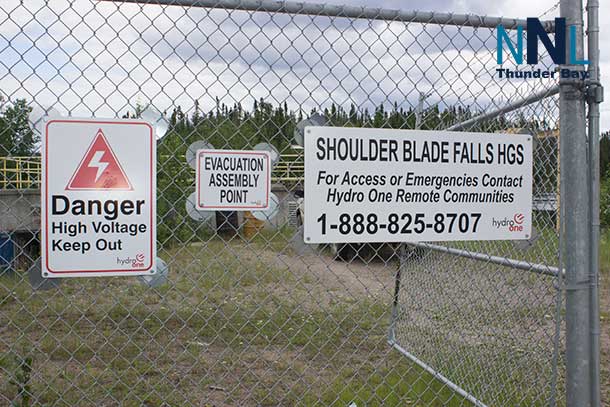
That seemingly ridiculous scenario is what is happening in Deer Lake First Nation.
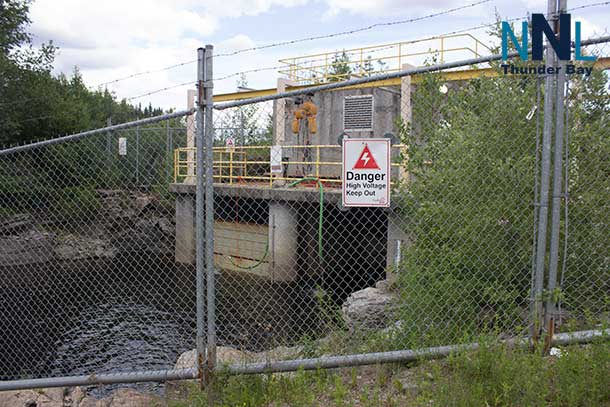
Like in many First Nations communities in Ontario’s north, housing is an issue, as young families need homes.
During a visit to Deer Lake First Nation, several residents brought up the irony that there are several homes in the community, which are ready to have families move into, however they are not hooked up to hydro, and cannot be lived in.
That is especially ironic when the power lines are mere metres from these homes.
The issue, apparently facing Deer Lake First Nation is electricity capacity. Resident say that Ontario Hydro says there is not the capacity to connect them to the power grid.
There is a power generating station as well as diesel generation in the community. The school has its own diesel generation as well as solar power.
Moves to boost power capacity have been going on for a long time. However there does not appear to be sufficient progress. This is a situation that if it were happening in a suburb of Toronto would likely never happen.
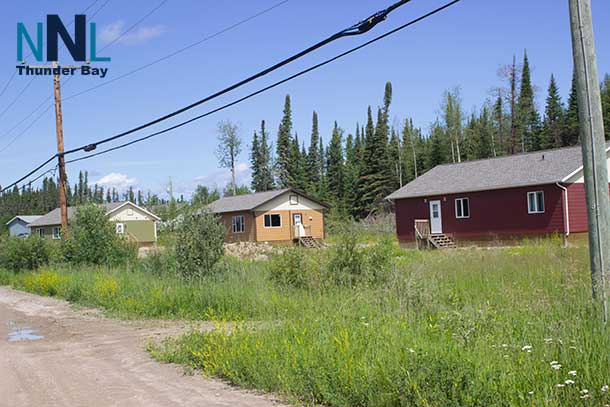
The homes pictured are over five years old, but still can’t be lived in. This represents lost opportunities, and what many feel is a serious issue facing the community.
A continuing issue for the North is the cost of gasoline and groceries. Power costs are also prohibitive blocks for development.
Gasoline in Deer Lake runs at between $2.50 to $3.00 per litre. Diesel fuel is about the same. The overall cost of energy is a major factor in the community.
The cost of propane is very high as well.
Food costs in the North are high. In Deer Lake that is no exception.
The federal government has come under fire over the Nutrition North Program as not helping to lower food costs enough. However the reality for retailers is that perhaps the program misses the real culprit in the reason that many foods cost so much. That is not the food but the cost of energy to keep the food.
The Ontario Government has made moves to fix this issue. However in Deer Lake First Nation, where it appears there are solutions at the ready, people have been left waiting for resolution.
Common Voice Northwest has saluted the Ontario Government over a decision announced that will help make a difference for communities across Northwestern Ontario.
Larry Hebert is the Co-Chair of the Energy Task Force along with Iain Angus. The decision by the Ontario Government to put aside a simple business case model for making decisions on expansion of the energy power grid will help across the region.
Common Voice Northwest says, “The move should open the door to expanding access to the energy grid for the North”.
The cost of power up north, Hebert shares can be as much as $2 per kilowatt-hour. That compares to a cost of about eleven cents per kilowatt-hour in Thunder Bay.
Not being on the grid, which is the current situation for many communities in the far north means that they are forced to rely on diesel fuel being brought into the community by tanker truck during the winter on the ice roads, or flown into the communities.
Hebert commented that in one case a community was in an emergency and 200 litre bladders of diesel fuel had to be flown in by helicopter costing about $10,000 per hour.
Now is the time for Ontario Hydro, and the Ontario Government to move past the announcement stage and shift to the action stage.
James Murray



